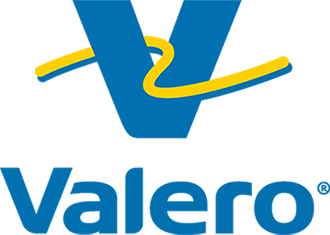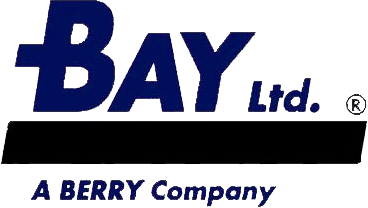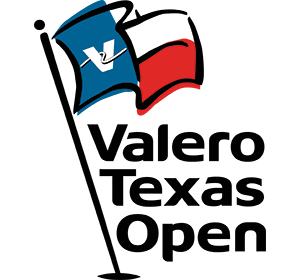Media Center Interviews
April 22, 2018
Final Round Interview with Andrew Landry
DOUG MILNE: Like to welcome Andrew Landry, winner of the 2018 Valero Texas Open. Andrew, congratulations on your first career PGA TOUR victory. With the win, all kinds of things which you can touch on. Among them you move inside the top-10 in the FedExCup standings to No. 9. 17-under 271, clear about two strokes for your first title. With that said, just some thoughts on getting the job done.
ANDREW LANDRY: It was obviously a tough week this week. You know, going into the last few weeks with the childbirth and just really getting back out and just trying to have some fun, it was a tough nine holes last week at RBC Heritage where 1 under maybe on the back nine would have catapulted me inside the top-10, so I just had a bad 4-over round on the back.
I was playing some good golf and I knew that I was going to be in good shape this week. I had Chuck out, my coach, and we came out and did a lot of work on Tuesday and it was really, really windy. So we just came out and had some fun, and that was kind of the strategy this week is just have some fun and be patient because this golf course can bite you in a hurry.
DOUG MILNE: One thing you said earlier in the week which I thought was interesting was the playoff loss to Jon Rahm in Palm Springs actually helped you in a way. If you can just elaborate on how you saw that.
ANDREW LANDRY: It helps because you get yourself in that situation and you continue to learn. You know, losing in that playoff when I was continuing to hit good shot after good shot, just not making any putts. Normally that's a strength of my game. Now here we are, a winner.
DOUG MILNE: And my final question is, thoughts on claiming your first PGA TOUR title in San Antonio, not far from Austin?
ANDREW LANDRY: Yeah, it's obviously great to be able to get a win so close to home. I'm only an hour away from my house so it's nice to be able to hop in the car this afternoon and go home.
Q. Andrew, at the start of the day playing with Zach Johnson, two-time winner, a veteran, and then Trey Mullinax, who had a course record yesterday, what were your thoughts? Like did you feel nervous, did that make you feel any more pressure than normal? How were you feeling?
ANDREW LANDRY: I felt fine out there, honestly. Obviously you're going to be nervous whenever you're trying to go and compete for your first win. I definitely felt nerves out there, to answer your question, absolutely. But it was -- Zach's such a good guy and he is so -- he just gets it. He was telling me good shot after good shot, just keep pushing. He would change the subject every now and then to just kind of lighten the mood. I just knew what I had to do. I just stuck to my game plan and saw it happen.
Q. How much were you battling nerves? It seemed like you and Trey were both battling nerves down the stretch. Was that how you saw it? He had the chunk there on one hole where he chunked it into the green and you missed a couple short birdies. Were nerves an issue there?
ANDREW LANDRY: No, nerves weren't issues that early on. 12, I just completely misread the putt, thought it was -- in the book it was showing two percent slope straight left to right and the putt never broke. So I hit a good putt, left it at that and tried to move on. Hit another good putt on the next hole for par and kept the momentum going.
The following hole I just had a complete lack of focus. That's all that was. It wasn't that I was nervous at all. I never honestly felt nerves until my third shot going into 18. That's kind of why I think the adrenaline just kind of kicked in and I blasted that wedge. It was not a good shot, that's not where I wanted to leave it. I was not scared of going in the water, it was just straight adrenaline.
Q. Andrew, after you holed that last putt, how much time did it take for you to realize that you were going to be playing in the Masters next year?
ANDREW LANDRY: Not until probably I think someone told me. I didn't even really think about it, to be honest with you. There's a lot of perks for a Tour win and you've just got to continue to stay focused and not think about those kind of things.
Q. Well, now that you're thinking about it?
ANDREW LANDRY: It's awesome.
Q. What are the thoughts?
ANDREW LANDRY: It's unbelievable. I cannot believe I'm going to get to go to Augusta National. Honestly, I had the opportunity to play it twice with Frank Broyles, who passed away. He was our athletic director at Arkansas and he asked me to go with him once. And another time I think we had a couple other people going because he was a member there. I just said -- I didn't go and I just said, I'll just do it whenever I play it, and now I'm here so it's pretty cool.
Matt, did you want to say something?
Q. Andrew, if I recall, after the first round at Oakmont you told your dad you were going to win the tournament, if that's correct?
ANDREW LANDRY: Yeah, something of that nature.
Q. Did you issue any kind of guarantee?
ANDREW LANDRY: I did not. It's kind of funny that last -- maybe last night, maybe it was this morning, whenever I was getting up and moving around I just told my wife, I was like, We're not talking about what we're going to wear, we're not talking about any of this, I'm just going to go out and play golf, you just need to figure it out and we'll get there. We've got a lot of golf left and this golf course can bite you in a hurry.
It's always -- we're just kind of always not -- if we stay in the present I think that it's going to help out a lot and that's kind of what we did today.
Q. Did you realize your mother had an Oakmont shirt on today?
ANDREW LANDRY: I did, yeah. They support that proud.
Q. I was just curious, how did that week overall, you talked about CareerBuilder, obviously you've had the U.S. Open, you've had the NCAA and getting so close there. It seems like those are several events that kind of helped develop some kind of thick skin and get you to where you were today?
ANDREW LANDRY: Yeah, I think every single player out here is good. Every single one of them's great. We're all here for reasons, because we worked really hard and we're really good at what we do. I think that all those kinds of things really help every player whenever you get in a situation and you fail and you continue to fail, you're learning every single time that you do something.
So yes, Oakmont definitely did help me. It helped me on how to control my pace and the way my swing is and how important how I walk, how that can lead into my golf swing. So it's definitely something that we've worked on. And definitely breathing more out there whenever I have some nerves and just accepting that I do have nerves and embracing them.
Q. Do you feel like this week is a culmination of all that that you've learned?
ANDREW LANDRY: I've always been a good driver of the golf ball, so whenever I get put in tight golf courses like a U.S. Open-style course where you have to drive the ball well and you have to hit fairways, that's the most important part. I feel like it's just as important out here because we had a lot of wind. We had different directions at all times, every single day was a different direction and I felt like driving the ball out here, you can get on a rock or a cactus real fast.
I feel like driving is key. I don't even think I drove it that well this week, but I definitely do think that I ironed it the best that I've hit it in probably about six years, to be honest with you. I went to those new shafts this week and it's just crazy how those worked out.
Q. Was there any point today where you were starting to get nervous that maybe this wasn't going to happen for you?
ANDREW LANDRY: No, no, I felt confident. I was shocked that the wedge on 17 came up that short, to be honest with you. I thought I hit it right on the number and I think it was maybe a foot from being all the way down.
Q. How important was the quick start, three birdies your first three holes?
ANDREW LANDRY: Yeah, obviously when you get off to a good start on Sunday being 3 under through 4 or 3 under through 3, that's huge. Getting off to a good start, that's momentum that you can just continue to just go with. I knew that front nine was gettable. I kind of looked at the pin locations to start the round and I knew that you can get those pins and I've just got to hit good tee balls and put myself in an opportunity to be playing from the fairway. So I did that and made a couple putts and, you know, unfortunately Zach and Trey kind of had some hiccups there on the front nine and they didn't play it as well as I did. So I think that that was really, really key to getting to where I am right now.
Q. Did you say anything to Trey, or what would you say about at the end he had that mis-hit on, what was it, in front of the bunker?
ANDREW LANDRY: Yeah, 17.
Q. And then he missed a short putt on 18, might have put a little more pressure on you, but he was right there on your tail?
ANDREW LANDRY: For sure. I didn't say anything, to be honest with you. I didn't really talk much today, I was just sticking to my game plan. We cut up a little bit out there, but it wasn't --
Q. What would you say to him?
ANDREW LANDRY: I mean, he's obviously a great player and I think that he's going to be in this situation again and I think that he will excel. I mean, that guy can absolutely move the golf ball. I've never played with him, that was the first time I played with him and it's pretty impressive.
Q. One other thing, you're from Port Neches?
ANDREW LANDRY: Port Neches.
Q. And your wife just had a child?
ANDREW LANDRY: Yep.
Q. Your first?
ANDREW LANDRY: First one.
Q. How long ago?
ANDREW LANDRY: A month and a few days.
Q. Okay, great. Congratulations.
ANDREW LANDRY: Thank you.
Q. What did you grow up -- in Port Neches, was that close to the river?
ANDREW LANDRY: Yeah.
Q. Were you a fisherman?
ANDREW LANDRY: Yeah, I was a fisherman. I love to fish. We went -- my brother and my dad, my dad grew up -- made us grow up bass fishing. Didn't make us, but we did. We loved bass fishing. My grandpa had a place at the lake. Then we eventually turned into salt water fisherman so we really pound that in the offseason.
Q. Where did you fish, what lake?
ANDREW LANDRY: I can't tell you that.
Q. Okay.
ANDREW LANDRY: Those are secrets.
Q. What kind of family did you have here today? Was all your family here today?
ANDREW LANDRY: Yeah, everybody, everybody. No, my mom and my dad, brother, wife, my brother's wife, my brother's wife's brother. I mean, we had the whole crew out. My parents, or my wife's parents. Everybody was out, so it was pretty special to be able to snag a victory with everybody being here to share it.
Q. Andrew, another one, you were paired with Zach for the last two days. It looked like he was almost cheering you on. Do you have a history with Zach, and what it's like to have a two-time major champion kind of cheering for you?
ANDREW LANDRY: I don't know, I didn't really see if he was cheering for me, but I know that he came up to me yesterday and said that that was an impressive round and obviously played very well and his caddie was pretty impressed. I look up to Zach as a player, as a role model. He's always been a great role model to look up to. I feel like we have very similar games where we draw it and we have shut face and we mash it and we'll just move on. He's a great competitor obviously, he's got major championships and PGA TOUR wins, and just to be able to do it with him as a role model is pretty special.
Q. Andrew, a lot was made a couple years ago when you were in contention about growing up at the Pea Patch and kind of learning your way on a course that's not exactly country club type. Can you just put that in perspective on kind of having that background and what you learned and how that kind of shaped your career?
ANDREW LANDRY: I learned the bump and run, obviously didn't show on No. 11. Chris Stroud, who plays on the PGA TOUR as well, he grew up there as well. It's funny that we have two Tour players that played from a nine-hole goat ranch, seriously. It's pretty amazing that both of us got out. It just shows that it doesn't really matter where you come from, it just matters the determination and hard work, anything that you put your mind so that you can accomplish.
Q. When you were there practicing as a kid, when did you first kind of dream about being a PGA TOUR winner?
ANDREW LANDRY: Oh, man, probably the first year that I ever played golf, 10 years old. I played good and I was always a competitor with my brother and tried to beat him in everything. He pushed me to another level, so I give him props for that. We just always had fun games out there. We had plenty of good players to play with. It was crazy, you could be on the PGA TOUR and a guy in Crocs could beat you. I'm not lying. It's pretty funny. It's just like I said, determination, hard work, that's kind of where you end there.
Q. Your dad said that they've turned that into kind of a housing development now?
ANDREW LANDRY: Yeah.
Q. When's the last time you've been to that area?
ANDREW LANDRY: Not too long ago, maybe Christmastime.
Q. What goes through your mind when you see that area now?
ANDREW LANDRY: It's just sad. There were so many people, good people that loved that golf course and loved the -- to go and play the Tuesday games and just have some fun out there and drink some beer, just have a good time. It's pretty sad that it went under and now that it's a housing development now, so it's sad.
Q. I'm sorry, one last question. Now that you've broken through, do you feel like this might open the floodgates? I mean, it's obviously a constant battle to win any week and very hard, but then you kind of got the first one past you now?
ANDREW LANDRY: Yeah, it's obviously very hard to win out here, so it could open the flood gates, I don't know. I mean I hope it does, I hope it opens up for a bazillion of them. But it's fine. This was definitely something that I wanted to do and accomplish and now we've got to set some more goals and try to achieve something higher, like a major championship.
DOUG MILNE: Got one last question. Your dad has been with FedEx essentially your whole life as a kid growing up. Was FedEx something that you kind of as a kid looking at his dad and what his dad does for a living, was that something that kind of fascinated you?
ANDREW LANDRY: No, not really, to be honest. I wanted to be a golfer. We played baseball growing up. I loved baseball, still do. But whenever I switched over to golf, that was kind of my dream and my parents and brother and my whole family supported me an unbelievable amount to where I can just push myself to another level and try to go win out here.
DOUG MILNE: And that you've done. Anybody else?
Q. Obviously getting a pair of cowboy boots is part of winning here. I assume that's not going to be your first pair?
ANDREW LANDRY: Nope, I've got a couple pair at home.
Q. How many pairs do you have?
ANDREW LANDRY: I think I have maybe two or three. Not anything special. We used to get pairs of Luccheses from the All-American Tournament in college. I used to have a couple pairs of those.
DOUG MILNE: Andrew, congratulations.
ANDREW LANDRY: Thank you, guys.
















